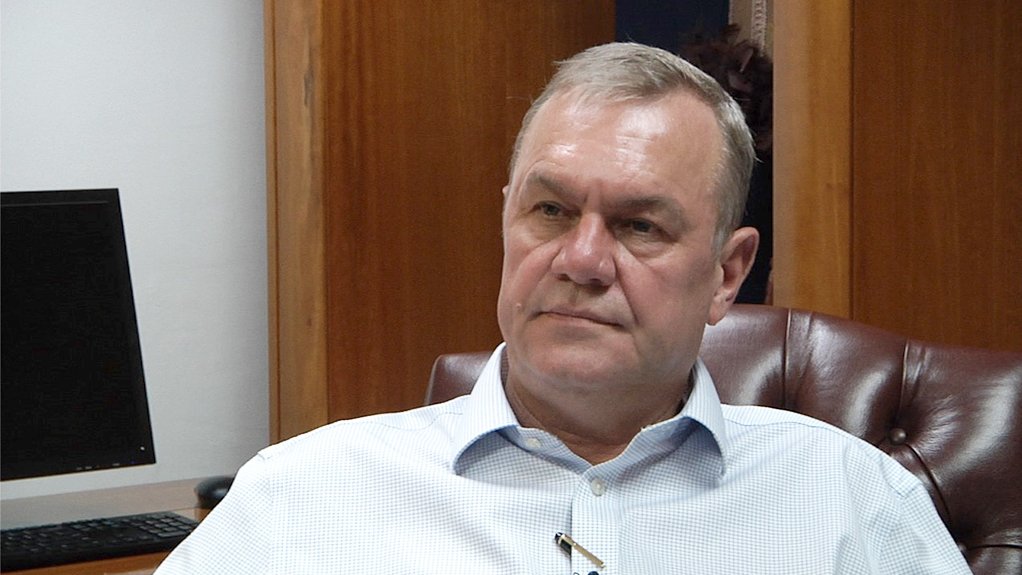The formation of South Africa’s business-friendly coalition government has triggered a wave of investment announcements and positive sentiment not seen in years, spurring hope that Africa’s biggest economy may finally be finding its footing after a lost decade-and-a-half.
Within days of the coalition agreement in early July, ArcelorMittal reversed a decision to shutter two steel plants that support 80 000 jobs. Soon after, Qatar Airways bought a stake in South African airline SA Airlink. A $70-million auto-parts facility to supply Toyota Motor, which just three years ago said it might leave the country, has since opened and Anglo American announced a $625-million iron-ore investment.
“This has been a difficult 10 to 15 years, but there’s a much more positive outlook,” Kobus Verster, CEO of the steelmaker’s local unit, said in an interview at Vanderbijlpark Works, Africa’s biggest steel mill that opened in 1952 south of Johannesburg. “We’ve got a great shot at this to make it sustainable,” he said of the construction steel facilities in Vereeniging and Newcastle.
Since the 2008 financial crisis, rampant corruption, erratic lawmaking and hostile relations between business and the state deterred investors — and in the May election helped cost the African National Congress its majority for the first time since the end of Whites-only rule in 1994. Economic expansion averaged less than 1% over the past decade, outpaced by population growth.
Now, the new government, the sudden end to years of crippling power outages and a decision to allow private participation in the country’s electricity, freight-rail and ports are seen as a chance to reignite growth in Africa’s most-industrialized economy. A backlog in work permit applications has been halved; key climate and energy legislation has been passed.
“We are in a significantly better space,” said Cumesh Moodliar, CEO of Investec South Africa. The country has a chance to become “more economically inclusive and potentially better placed to seize some of the opportunities,” he said.
Still, while the mass power outages that have plagued the country since 2008 ceased more than five months ago, rail tonnages remain a third lower than in 2018, limiting exports. Crime is rampant and there have been few prosecutions of politicians involved in corruption.
The country has a full house of junk credit ratings and is on a dirty-money list. Government debt that the Treasury expects to stabilize at 75.3% of gross domestic product in 2026 is unsustainable, the economy grew just 0.7% last year and a third of the workforce is unemployed.
When President Cyril Ramaphosa took office in 2018, he rode a wave of investor enthusiasm dubbed “Ramaphoria.” But he moved too slowly on economic reforms and tackling corruption — growth stagnated, businesses limited investment, crime worsened and infrastructure deteriorated.
Business leaders expect the coalition government — stocked with opposition members in the Cabinet — to perform better because of increased competition and as a chastened ANC will need successes to bolster waning support.
“The fear of failure is going to be an important asset for us as South Africans, because we are going to benefit from politicians who want to get things done so they can go back and say, ‘we made the right decisions, you can trust us,’” said Khulekani Mathe, the incoming CEO of Business Unity South Africa, the country’s biggest business lobby group. “It’s providing this enormous opportunity for the country to really pull itself up.”
Markets have reacted positively. The rand has rallied since the government’s formation, the benchmark stock index hit a record, government bonds are offering world-beating returns and the premium investors demand for holding South African debt instead of US Treasuries dropped to a five-year low in early September.
“There’s rising optimism,” said Simone Pohl, CEO of the Southern African-German Chamber of Commerce and Industry, which represents 600 German companies operating in South Africa employing 100 000 people.
Pohl is receiving more inquiries from companies seeking to invest, but “the economy still needs to deliver, we need stronger GDP growth,” she said.
A big part of ArcelorMittal’s decision — which saved 3 500 steel jobs and bolstered employment security at the company’s 2 500 suppliers and 550 customers — is the newly stable power situation. This year, the company has been asked maybe twice to reduce its electricity consumption by the state power utility, compared with as many as 60 times annually in recent years, Verster said. Rail service, to bring ore to plants and take products to market, has also improved.
That’s because relations between the government and business have improved, said Mpumi Zikalala, the CEO of Anglo unit Kumba Iron Ore. Last year, the company fired workers because the state rail company couldn’t keep pace with its production. It ran out of space to store 8-million tons of ore stranded 535 miles from a port.
“Everybody acknowledges the challenges,” she said of talks with the government, which is negotiating allowing Kumba and other companies to contract their own trains on its rail. “What I do like is that all parties understand that we need to do this together.”
The company is tripling the quantity of high-quality iron ore it can produce with a project due for completion in 2028.
In an August 28 speech in Johannesburg to Business Unity South Africa, Ramaphosa praised the deeper relationship between business and government and said it was “far too important to fail.”
It could have been very different.
Following the collapse of the ANC’s vote share, it considered teaming up with populist parties advocating nationalization. Instead, it formed a broader coalition in which its biggest partner is the market-oriented Democratic Alliance.
“We would have immediately seen the rand weaken quite significantly, foreigners would have dumped our bonds, our debt repayments would have rocketed,” Jeremy Gardiner, a director at Ninety One, the country’s largest private investment firm, told clients last month. “Investment would have collapsed, jobs would have been lost.”
The rosy relations between business and the state and the privatization pledges need to be translated into action if the positive sentiment is to last.
“It’s really pleasing, the sense of urgency, priority in turning things around,” but concrete results are now needed, said Kuseni Dlamini, chairman of Walmart Inc.’s local unit and the American Chamber of Commerce in South Africa, which says its members account for 10% of national economic output. “We are in a competitive race with other nations to attract and retain the investment needed for the economy.”
EMAIL THIS ARTICLE SAVE THIS ARTICLE
To subscribe email subscriptions@creamermedia.co.za or click here
To advertise email advertising@creamermedia.co.za or click here













